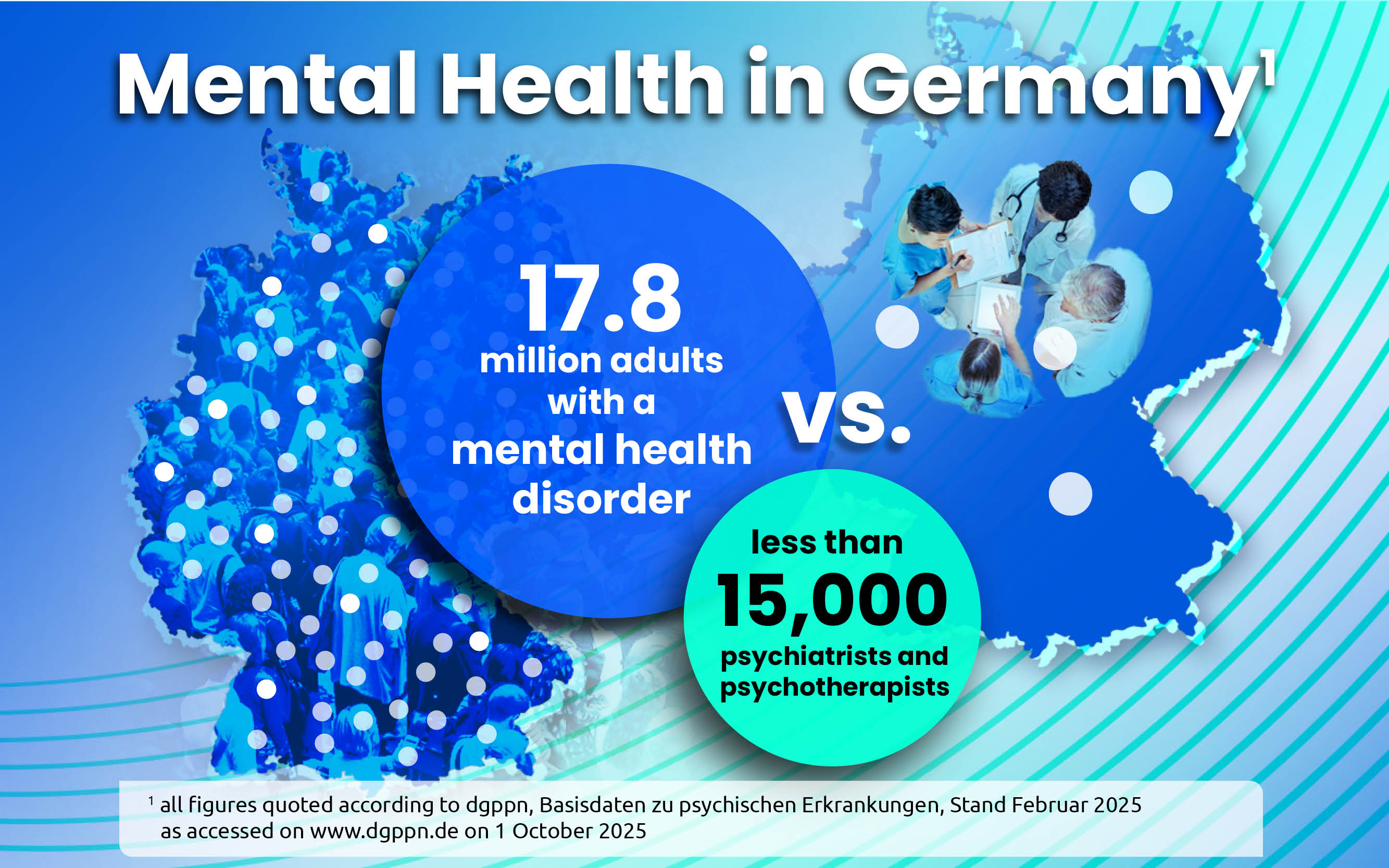Mental health for everyone requires better access to therapy
Over the past years, the German population has encountered deteriorating mental health, particularly in the wake of the COVID pandemic. Nevertheless, mental health issues still carry a stigma, and many are suffering in silence. Least of all because access to therapy and treatment is difficult. This is why I would like to share my story.
Why am I sharing my story?
As a patient, I am aware of daily struggles, of the battle to get access to adequate treatment and therapy. Therefore I would like to make a plea to our Minister of Health to lower the administrative hurdles for access to adequate therapists and to increase the investment into educating new practitioners, so there will be sufficient healthcare professionals in future to stem the increasing tide of mental health conditions.
This is my story
On New Years Eve 2009 I experienced my first panic attack. A frightening experience, as I did not know what was wrong with my body. At the age of 25 my GP dropped the bombshell that I was physically fine, so my issue must be of a mental nature. I was diagnosed with an anxiety disorder and burn-out shortly afterwards. A depression followed, because I couldn’t leave the house. My whole world fell apart at the time, because it felt like mental health issues existed in society but I had no one to talk about them with.
I had two choices: fight or flea. Facing the challenge, I chose to educate myself on my condition so I could understand better what was happening and I started looking for a therapist. Finding one with availabilities was a challenge. Luckily, I dialled the right number at the right time, but this is unfortunately not the reality for everyone.
Mental health therapy is individualised therapy
No patient is the same and everyone has a different story. A good therapist knows this and is able to respond accordingly to each patient in an individual manner. A fact that I became painfully aware of when my healthcare insurance deemed my choice of therapist non-refundable and forced me to visit a number of different insurance approved practitioners. Having to retell my story to each and every one of them meant reliving my nightmare. The reactions I received were interesting to say the least. In the end, proving that none of the other practitioners worked, I was able to go back to my original choice.
Treatment success very much depends on individual chemistry. Mental health issues and the respective therapy require a connection between patients and therapists that is built on trust and respect.

Mental health in Germany today
Mental health conditions are no small issue, not for the individual and not for the nation. They can lead to loss of life and they also have a detrimental effect on the economy.
According to the German Society for Psychiatry and Psychotherapy1,
- each year 17,8 million adults in Germany are diagnosed with a mental health disorder which equals approx. 27,8% of the German population in Germany. Only 18,9% of them seek professional help
- on average, patients wait around 20 weeks for a therapy appointment, but the waiting time is increasing.
- in 2023 around 10,300 people in Germany committed suicide, approximately 50-90 percent of them were related to mental health issues.
- in 2023, 16% of sick days were filed due to mental health issues which equals 323 days of sick leave per 100 employees.
- mental illness was also the leading cause of early retirement in 2023, which accounted for 42% of all cases.
- there are less than 15.000 psychiatrists and psychotherapists in Germany. 71% of them are older than 50 years. This means that almost three quarters of them is likely to retire within the next 10 to 15 years.
In short, while the number of patients suffering from mental illness is increasing there will be a dearth of healthcare professionals to treat them if approbation rates of practitioners are not drastically increased.
Therefore, I ask our Minister of Health to redouble the financial efforts to educate more psychiatrists and psychotherapists in order to facilitate access to treatment programmes. Patients cannot wait five months to talk to a therapist; it might be too late for some of them.
References:
1 All figures quoted according to dgppn, Basisdaten zu psychischen Erkrankungen, Stand Februar 2025 as accessed on www.dgppn.de on 1 October 2025
Author









